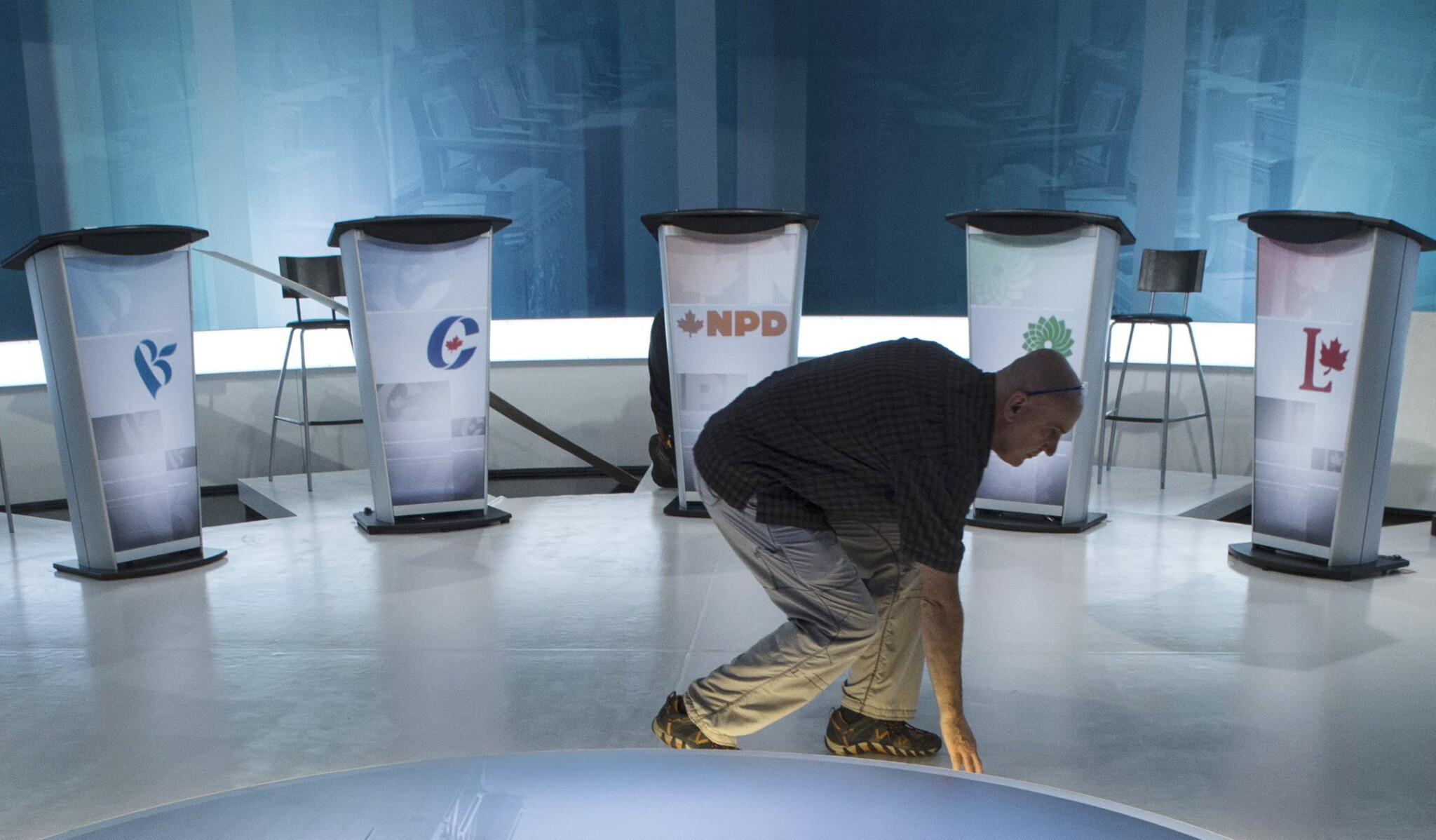Last week, a group of 13 major disability organizations held their only all-candidates debate. It was an attempt to bring attention to the needs of the most vulnerable members of Canadian society, who rely on government support the most. The Liberals, NDP, and Greens sent a candidate. The Conservatives were no-shows. They didn’t even bother returning the organizer’s phone calls.
“The Tories never answered us,” longtime disability rights activist David Lepofsky told me.
This week, when Conservative leader Pierre Poilievre takes part in the national leaders’ debates, he will be one of the only candidates in his party across the country stepping up onto a debate stage during the election.
In doing so, the Conservatives will continue a long (un)proud tradition of unofficially forbidding candidates from participating in debates in their ridings. It’s a mistake that I believe is objectionable, electorally harmful, and flies in the face of a new conservative movement not afraid to fight on the battlefield of ideas.
It’s also cowardly. If you want to prove you can and should end 10 years of Liberal rule, the least you could do is show up to tell voters how you plan to do it.
Years of flying under the radar
I’m not sure when the custom first began. It used to be an expectation that candidates would attend at least one all-candidates debate in their riding; it was embarrassing if you didn’t. But it appears just over a decade ago, both the federal Conservatives and their provincial Progressive Conservative (PC) cousins began to shy away from church basements and community centres during the writ period.
During the last Ontario provincial election, a PC source told The Trillium, it was “against party policy” for candidates to participate in local debates. Yesterday, a former senior member of the Conservative Party of Canada told me it was “unofficial doctrine” that their candidates do not attend debates.
Ironically, when I repeatedly questioned the party about whether they had formally barred candidates from attending debates this election, they didn’t show up to that conversation either.
If they were speaking frankly with me, I’m sure they’d say that debates are one of the riskiest events a candidate can attend. They are the opposite of campaign control. One embarrassing flub and your candidate can be clipped into oblivion on social media. Not to mention they can be a huge time suck during a short election where every moment matters. Debates mean lengthy candidate prep around niche issues with limited returns. Often, the debates themselves feature left-leaning parties and moderators ganging up on the Tory, attended by folks who have probably made up their minds. They’d tell me it’s far more efficient and rewarding to door knock or post a few more slogans on Instagram.
Time to show up
But not attending debates also means Conservatives are avoiding scrutiny from their opponents, and, more importantly, the constituents they’re hoping to serve.
Conservative thinkers like Burke and Hayek taught us that society reforms and improves itself by letting ideas compete in the public square. Debate thus serves as a proving ground, where good ideas are tested and refined, and bad ones are exposed. Preaching to the converted at raucous rallies feels great, but persuading voters who are on the fence—the very voters the Conservatives could use right now—could prove far more beneficial to the party.
Debate is also the gateway drug that has brought many young people, especially young men, into the conservative movement. Today, an unprecedented 45 percent of voters aged 18 to 34 are planning to vote blue. These young Canadians were raised on an online diet of conservative personalities who dared to go behind enemy lines onto hostile university campuses armed only with a poster that said “Change My Mind,” inviting swarms of people with opposing viewpoints to debate them. Young conservatives crave courageous politicians who can publicly defend what they believe in. It’s hard to “own the libs” if you refuse to share a debate stage with the libs.
Finally, during our 51st state bout with the Americans, it would help if we distinguished ourselves from them. By banning Conservatives from debates in their constituencies, the party is telling voters they don’t need to get to know their local candidates. They’re telling voters that when they mark their ballots, they should only be thinking about the leader—almost as if we were an American-style republic with an elected president. But we are Canadians. We don’t vote for prime ministers. We vote for MPs who we believe will best represent us in Ottawa.
Practice debating locally could even mean that if they do make it to Ottawa, candidates might gain enough oratorical skills to not have to read off a sheet of paper when arguing with their new opponents in Question Period.
Conservatives should stop hiding. It’s time to break their unspoken rule. It’s time for Conservatives to buck up and show up for debates in their communities.










